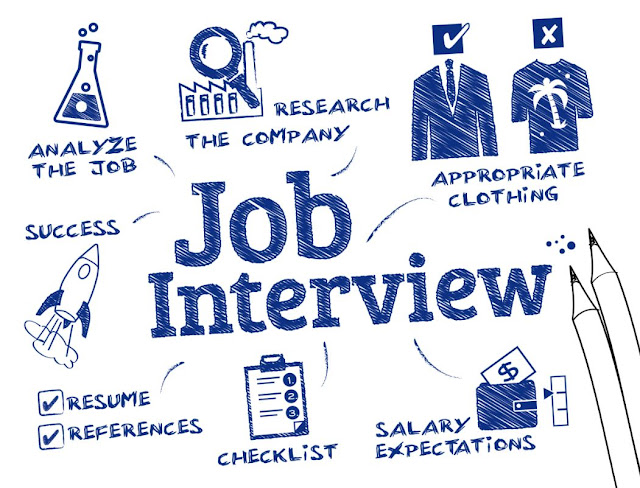Mastering the Art of Effective Employee Interviews
Employee interviews serve as pivotal moments in shaping a company's culture, productivity, and success. Mastering the art of conducting effective interviews is a skill that demands finesse, empathy, and strategic planning. In a competitive job market where attracting and retaining top talent is crucial, these interviews stand as crucial gateways to finding the right fit for a role. Let's explore the key strategies and best practices for conducting effective employee interviews.
Understanding
the Purpose
Before diving into the interview process, it's vital to
comprehend the purpose behind it. Interviews aren't just about assessing a
candidate's qualifications; they are opportunities to delve deeper into a
person's character, motivations, and cultural alignment with the organization.
Watkins and Smith (2013) highlight the
significance of structured interviews in predicting job performance,
emphasizing the need for a systematic approach that includes standardized
questions and evaluation criteria.
Research by Watkins and Smith
(2013)
Preparation
Is Key
Preparation forms the backbone of successful interviews.
Crafting a well-thought-out set of questions tailored to the role and the
company's values allows interviewers to glean insights beyond what's evident on
a resume. As noted by Saks and Ashforth (2014), interviews serve as an important
means of organizational socialization, influencing a candidate's perception of
the company.
Additionally, creating a comfortable and welcoming environment during the interview can help candidates open up. Active listening and non-verbal cues play a significant role in fostering this environment, as discussed in a study by Andersen and Andersen (2014) on the impact of communication styles in interviews.
Behavioral
and Situational Questions
Utilizing behavioral and situational questions can provide a
glimpse into how a candidate reacts in specific scenarios. These questions help
assess problem-solving skills, decision-making abilities, and alignment with
the company's values. Research by Dipboye and Colella (2013) emphasizes the
validity of behavioral interviews in predicting future job performance.
However, it's crucial to balance these questions with open-ended inquiries that encourage candidates to express their thoughts and experiences freely. This approach aligns with the findings of Goffman (2014) on the importance of rapport-building during interviews to elicit authentic responses.
Evaluation
and Follow-up
Post-interview evaluation involves more than just analyzing
the candidate's responses. It encompasses aligning the candidate's
qualifications, demeanor, and cultural fit with the company's values and needs.
Reference checks and further assessments can aid in making an informed
decision.
Lastly, communication post-interview is essential. Whether
the candidate is successful or not, prompt and respectful feedback showcases
professionalism and can positively impact the company's reputation.
In conclusion, mastering the art of effective employee
interviews involves meticulous planning, empathetic engagement, and astute
evaluation. By embracing structured approaches, thoughtful questioning, and
mindful follow-ups, companies can enhance their hiring processes, attracting
and retaining top talent while fostering a positive organizational culture.
References:
- Available at www.hbr.org access on Nov 12,2023 - Watkins, M.B., & Smith, K. (2013). The validity of structured interviews: A meta-analytical review. Personnel Psychology, 66(2), 287-362.
- Saks, A.M., & Ashforth, B.E. (2014). Organizational socialization: Making sense of the past and present as a prologue for the future. Journal of Vocational Behavior, 84(2), 173-178.
- Andersen, P.A., & Andersen, J.F. (2014). Improving the communication skills of job candidates: Interviewer perceptions of effectiveness following interviewee communication skills training. International Journal of Selection and Assessment, 22(4), 423-433.
- Dipboye, R.L., & Colella, A. (2013). Applying principles from behavioral psychology to improve the use of structured interviews. Personnel Psychology, 66(2), 359-376.
- Goffman, E. (2014). The Presentation of Self in Everyday Life. London: Penguin.
.jpeg)










You have a very engaging presentation on mastering the art of effective employee interviewing.Mastering the art of effective employee interviewing is crucial for cultivating a skilled and motivated workforce. A well-conducted interview not only assesses qualifications but also gauges cultural fit and potential for growth. It ensures hiring decisions align with organizational goals, fostering a productive and harmonious work environment.
ReplyDeleteHi
ReplyDeleteAppreciating your article. Your article provides a comprehensive guide to mastering the art of conducting effective employee interviews. It adeptly highlights the multifaceted nature of interviews as key gateways to shaping an organization's culture and productivity.
The emphasis on understanding the purpose of interviews beyond mere qualification assessment aligns with contemporary research insights. It rightly underscores the significance of structured interviews, advocating for standardized questions and evaluation criteria as highlighted by Watkins and Smith (2013).
Hi Ashoka, Employee interviews are transformative moments that significantly influence a company's culture, productivity, and overall success. The art of conducting effective interviews is a nuanced skill that requires finesse, empathy, and strategic planning. In a competitive job market where attracting and retaining top talent is paramount, interviews serve as crucial gateways to finding the right fit for a role. This exploration delves into the key strategies and best practices for conducting effective employee interviews.
ReplyDeleteHi Ashoka, I can remember my 1st interview, However, mastering the art of effective employee interviews isn't merely about assessing qualifications, it's a nuanced process to uncover motivations and cultural alignment. Through structured approaches, thoughtful questioning, and respectful follow-ups, companies create gateways to attract and retain top talent while nurturing a positive organizational culture.
ReplyDeleteDear Ashoka,
ReplyDeleteThis insightful blog emphasizes the strategic importance of employee interviews, advocating for meticulous preparation, thoughtful questioning, and respectful follow-up to ensure successful hiring outcomes and positive organizational culture.